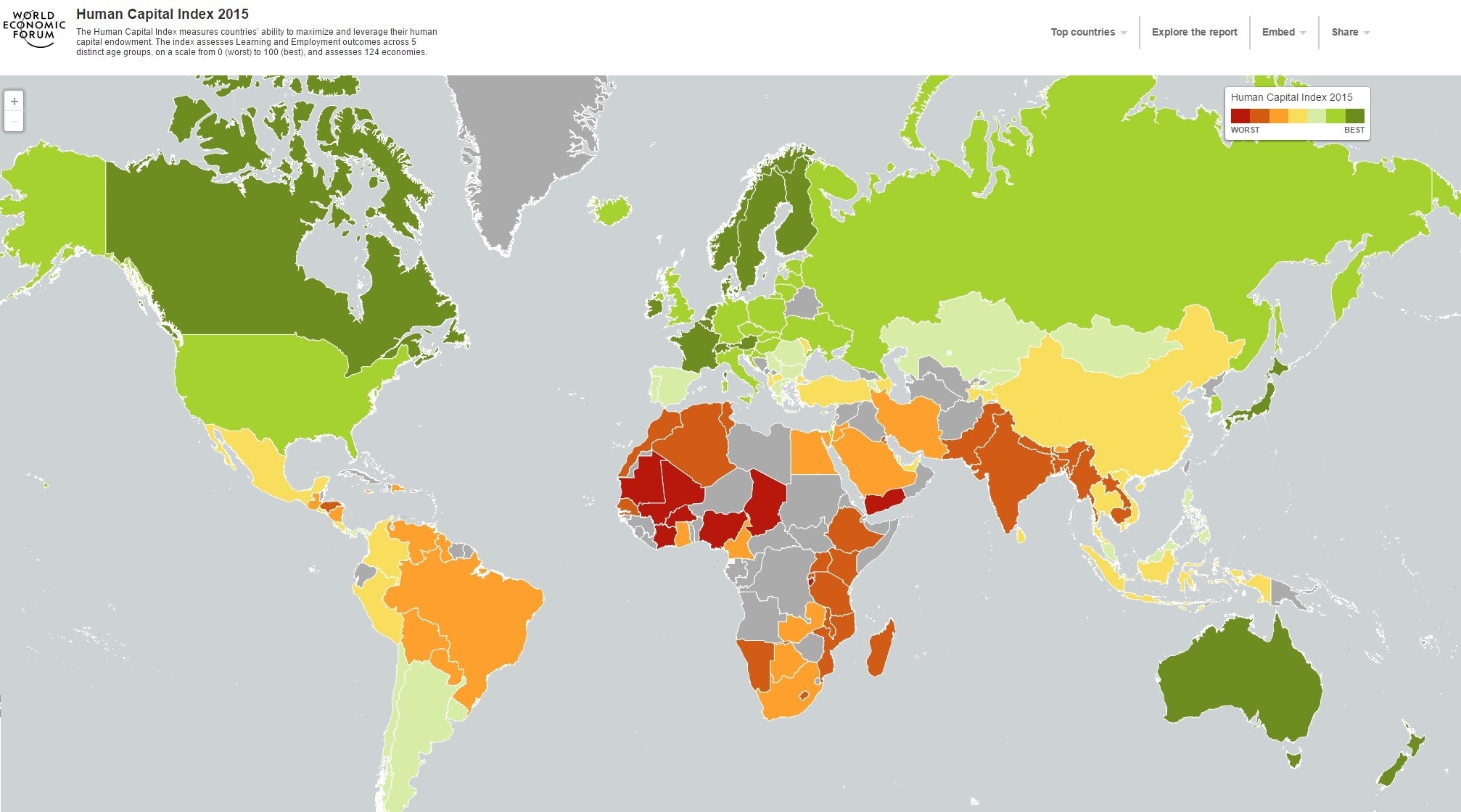How can Asia close its emerging skills gap?

Image: A vendor pours milk to cool it-off before serving it to the customers at a makeshift roadside shop in New Delhi. REUTERS/Anindito Mukherjee
Asia is facing a human-capital challenge. Over the last three decades, significant gains in workforce size and quality helped Asia to become a hub of global supply chains – and thus to sustain rapid progress toward advanced-economy income levels and living standards. But with workers increasingly unable to meet the demands of the labor market, the region’s remarkable development success could be derailed.
Asia has plenty of educated young workers. But, at a time of industrial upgrading and ever-increasing technological sophistication, the knowledge and skills gained in school are often insufficient. As a result, youth unemployment, underemployment, and job dissatisfaction are on the rise.

Throughout Asia, a significant share of workers feel they are over- or under-educated for their jobs, while employers often lament a lack of qualified graduates. A Manpower Group survey shows that 48% of employers had difficulty filling vacancies in Asia in 2015, compared to 28% in 2006. Meanwhile, many university graduates – including a whopping 45% in South Korea – are struggling to find jobs.
Despite variations among countries in Asia, some weaknesses in policies and systems designed to boost skills development are endemic. Among the most damaging is the inability of many countries to impart the right skills through pre-employment and on-the-job training.
In India, for example, only 0.8% of students, on average, participated in formal technical and vocational education at the secondary level from 2006 to 2010. The country’s technical and vocational education and training (TVET) system has enough capacity to train less than one-quarter of the 13 million people entering the labor market each year. TVET is rarely available to workers in small and medium-size enterprises (SMEs) or the informal sector, and it receives too little public financing.
Moreover, across Asia, a lack of involvement by private companies – that is, potential employers – further undermines the ability of TVET systems to respond adequately to changes in the labor market, thereby reducing graduate employability. In Bangladesh, Indonesia, and Sri Lanka, less than one-quarter of companies conduct formal in-house training. A dearth of well-qualified teachers and ineffective governance exacerbates the situation.
Governments across Asia must devise ways to transform their education and training systems, so that workers acquire the skills they need to boost economic growth and productivity – the key to better jobs and higher wages. Most important, governments must make skills acquisition a central feature of national development policies. At a time of rapid change, education and skills training should be coordinated with, say, trade and industrial policies to improve the chances that emerging labor-market requirements will be met.
Moreover, general education and TVET systems need to be restructured. In many Asian countries, formal education is often overly academic or simply low-quality, undermining not only graduates’ employability, but also their capacity to reap the benefits of further TVET. To be effective, secondary and tertiary schools must produce graduates with both soft skills, such as communication and teamwork, and relevant technical skills. Here, stronger partnerships between educators and employers to develop curriculum standards, create internship opportunities, and provide financing would be help significantly.
As for TVET systems, both their capacity and quality must be improved. As governments improve their capacity for supervision, coordination, and regulation of the TVET system, actual skills training should be shifted to the private sector, thereby transforming the current supply-driven system to one that responds effectively to changing market demand.
To this end, governments should encourage public-private partnerships focused on, for example, identifying the labor market’s unmet needs, setting TVET policy priorities, developing curricula and national standards, training TVET teachers, and implementing cost-sharing mechanisms. Governments must also ensure better access to TVET systems for disadvantaged groups, including children from poor families and rural areas and employees in SMEs and the informal sector.
Given that the challenge of upgrading educational and skills-training systems is shared across Asia, national governments should not be working in isolation. More knowledge-sharing, especially with regard to curriculum development and teacher training, as well as expert and student exchanges and improved technology-sharing, would strengthen everyone’s efforts considerably. Moreover, promoting greater student/worker mobility and improving labor-market flexibility, both within countries and across the region, would help to improve the allocation of skilled workers.
In the coming decades, Asia will continue to contribute a large number of workers to the global labor market. How well equipped these workers are to meet ever-evolving market needs will be a key factor influencing not only Asia’s trajectory, but also that of the entire global economy.
Don't miss any update on this topic
Create a free account and access your personalized content collection with our latest publications and analyses.
License and Republishing
World Economic Forum articles may be republished in accordance with the Creative Commons Attribution-NonCommercial-NoDerivatives 4.0 International Public License, and in accordance with our Terms of Use.
The views expressed in this article are those of the author alone and not the World Economic Forum.
Stay up to date:
Future of Work
Related topics:
Forum Stories newsletter
Bringing you weekly curated insights and analysis on the global issues that matter.
More on Jobs and the Future of WorkSee all
Till Leopold
November 14, 2025






